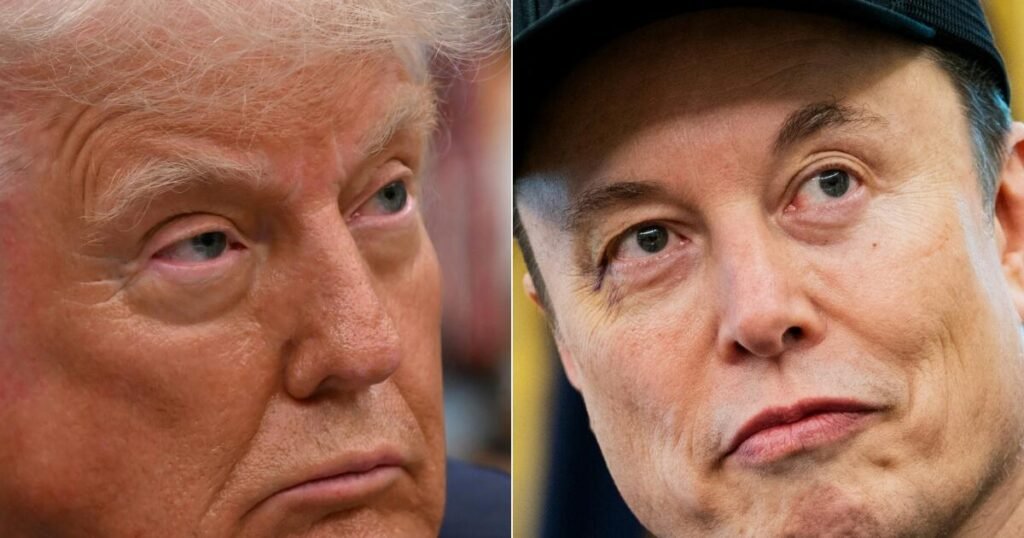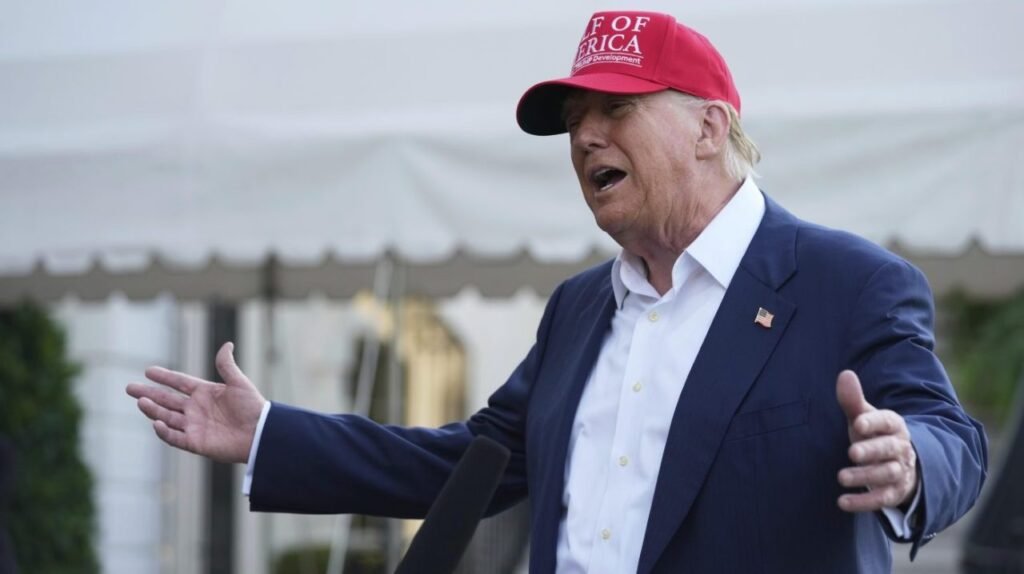Well, he did it. He actually did it.
President Donald Trump had insisted for months that he wanted the ultimate deal with Iran, one that would put a definitive end to the country’s ability to produce a nuclear weapon. As late as Thursday, he’d suggested that Iran’s leaders would have up to two more weeks to negotiate. But at that point, he had already made up his mind: The United States was going to bomb Iran.
The president had privately communicated his decision to bomb Iran’s nuclear sites after a meeting with national security advisers on Wednesday, two people familiar with his decision told us. His statement on Thursday, suggesting a two-week window and “a substantial chance of negotiation” with Iran, was a feint meant to keep the Iranians off guard, four people familiar with the planning told us. (The White House did not respond to a request for comment on Saturday night.)
Trump declared from the White House on Saturday that the strikes hours earlier had left Iran’s nuclear facilities “completely and totally obliterated,” and demanded that Iran abandon any remaining nuclear capability. The assault was the culmination of a nearly two-decade effort to contain or end Iran’s nuclear program. It thrusts the United States more deeply into a high-stakes confrontation with a country where members of Parliament chant, “Death to America,” and quite possibly increases the potential for counterattacks and economic disruption.
“There will be either peace, or there will be tragedy for Iran,” Trump said, standing with Vice President J. D. Vance, Secretary of State Marco Rubio, and Secretary of Defense Pete Hegseth.
The suggestion of a two-week reprieve Trump announced on Thursday came as the U.S. government prepared for a range of scenarios, flying U.S. citizens out of Israel, moving personnel out of American embassies in the Middle East, and dispersing ships and aircraft from bases in the region to prevent damage in any Iranian attack.
The administration must now brace for the possibility of Iranian retaliation, which current and former officials told us would most likely be aimed at U.S. bases, personnel, or facilities in the Gulf, Iraq, or elsewhere in the region. The attacks could also have commercial repercussions if Tehran moves to attack or block shipping in the waterways off Iran.
The operation was closely coordinated with Israel, now a week into its own highly effective bombing campaign on Iranian nuclear and military sites, a person familiar with the planning told us. After the U.S. strikes concluded, Trump spoke with Israeli Prime Minister Benjamin Netanyahu, who has long pushed the United States to act.
Trump chose to initiate his air assault after he was impressed by the success of Israel’s offensive, which has further eroded Iran’s air-defense capability, and came to believe that “a little push from us would make it incredibly successful,” an ally of the president who spoke with him about the decision told us.
U.S. officials told us that Trump had genuinely wanted to strike a nuclear deal with Iran—seven years after he’d ripped up the agreement reached by former President Barack Obama—but had come to an impasse with the Iranians over the issue of the enrichment of uranium. Washington had demanded that Tehran give up enrichment entirely or else submit to strict American and international supervision; Iran had refused those conditions. Some officials held out hope that U.S. bombing will change Iran’s calculus and force its leaders to negotiate on the full dismantlement of the nuclear program. In the short term, however, they predicted that Iran will resort to asymmetric warfare, deploying cyberattacks and other operations that could potentially draw the United States further into the conflict.
Retired General Joseph Votel, who served as the commander of U.S. Central Command during the Obama and first Trump administrations, told us that the United States will now employ aerial surveillance, mapping, and signals intelligence to assess the damage to Iranian nuclear sites.
“It’s not as great as putting your own eyeballs on it,” Votel said, “but it’s pretty good.”
Trump’s announcement of U.S. strikes on Saturday evening came about 90 minutes after the White House told reporters following the president that there would be no more news for the night and that they could go home. European leaders were meeting with an Iranian delegation as recently as Friday, in an effort to further negotiations. It was not clear whether the United States had told even its closest allies that, all the while, Trump had already made up his mind to strike.
Precisely what convinced Trump that Iran was close to making a weapon remains mysterious. For years, including when Trump was last in office, the U.S. intelligence community has publicly stated that Iran is not trying to build a nuclear weapon. Director of National Intelligence Tulsi Gabbard reiterated that bottom-line conclusion during congressional testimony in March.
But Trump dismissed her statement and the information behind it. “She’s wrong,” Trump told reporters on Friday, days after he had already made the decision to bomb Iranian nuclear facilities. Iran had gathered “a tremendous amount of material,” he continued, apparently referring to the enriched uranium necessary to create a bomb. Earlier in the week, Trump had said that he thought Iran was “very close to having” weapons.
The U.S. intelligence community had also said that Iran was enriching uranium that could potentially be used in a weapon, and was stockpiling highly enriched uranium far in excess of what would be needed for a civilian energy program.
But crucially, U.S. intelligence agencies had long ago determined that Iran’s supreme leader had suspended the weapons program in 2003. Enriching nuclear material is just one component of a weapon. A nuclear warhead has to be fitted onto a ballistic missile capable of surviving reentry into Earth’s atmosphere and landing on its target—not a trivial feat of engineering.
In an apparent attempt to make U.S. intelligence analysis adhere more closely to Trump’s own judgments, Gabbard said on Friday that her comments before Congress that Iran was not trying to build a weapon had been deliberately misinterpreted by “dishonest media.”
“America has intelligence that Iran is at the point that it can produce a nuclear weapon within weeks to months, if they decide to finalize the assembly,” she said in a post on X. She offered no additional information to explain that conclusion.
In a statement after the U.S. strikes, Senator Mark Warner of Virginia, the top Democrat on the Senate Intelligence Committee, argued that Trump had made his decision “without regard to the consistent conclusions of the intelligence community.”
Trump had fervently hoped for a negotiated deal but had also been convinced that Iran had never been weaker and would not be able to retaliate in a meaningful way, two people familiar with the matter told us.
“Iran was in trouble,” one said, “and now was the moment to pounce.”





